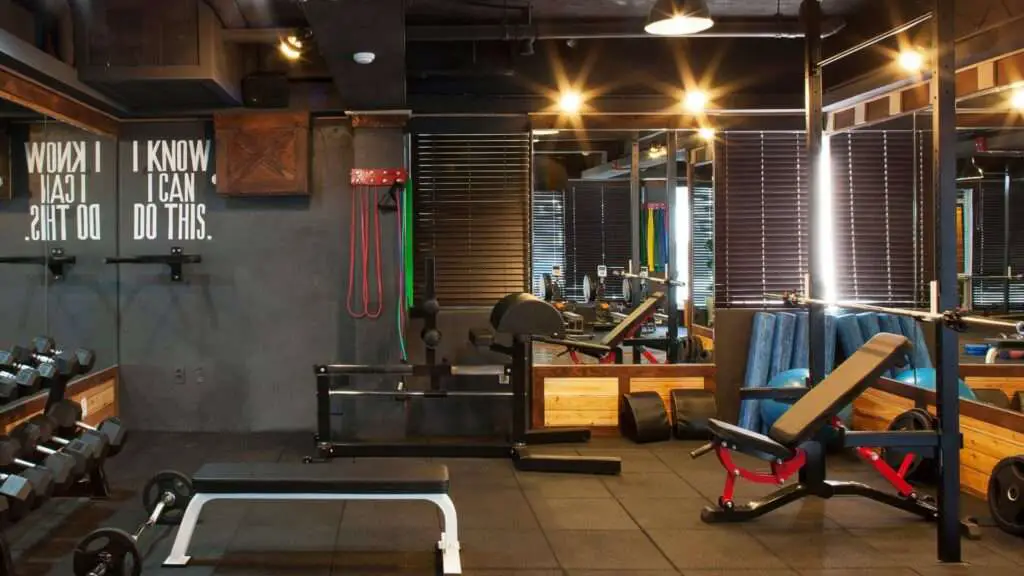The gym is where you can get fit and stay healthy by pushing your body to its limits. However, hygiene at the gym doesn’t always reach the same standards as in other sports domains.
As a result, the risk of catching a virus or infection while working out is very high, and this is why it’s essential to be attentive when it comes to personal hygiene at the gym.
The bacteria, viruses, and germs found at the gym are transmitted through contact with surfaces that are not cleaned correctly or with personal items. However, read below to minimize the risk of contracting an infection and maximize the quantity of hygiene while working out.
Tip for better hygiene at the gym
If there’s one thing, you should remember, cleanliness is crucial when preventing infections at the gym. This means you must be highly attentive when cleaning your equipment and keeping your hands, gym clothes, and shoes clean. To keep your gym environment clean, you should follow some simple tips.
1. Wash your hands before and after the workout:
Hand hygiene is the most efficient way to prevent infections contracted through touching surfaces or personal items. To prevent bacteria from spreading, you should wash your hands before and after each workout session.
It would be best to clean your equipment with a personal cloth or tissue after and before each use. This way, you will prevent any bacteria or viruses from spreading. Always keep in mind to SAVE WATER, and avoid water wastage.
2. Change your gym clothes regularly:
When you work out, your sweat can transfer bacteria and viruses to your clothes. This way, bacteria will keep growing as long as your clothes remain wet. To prevent this, you should change your clothes or wash them regularly.
The best way to avoid the risk of transferring bacteria to other people is by wearing clean gym clothes before starting your workout session. At the same time, you will stay fresh and energized.
3. Wipe Down Equipment:
The equipment you use at the gym can be a source of bacteria and viruses. For example, you should wipe down the machines after each use. After using them, you can also wipe down the bars or handles of your dumbbells or machines. If you use a yoga mat, you should clean it regularly and disinfect it after each use. This way, you will prevent the risk of transmitting bacteria or viruses to other people.

4. Use deodorant before and after working out:
Many people don’t realize that deodorant can prevent bacteria from spreading. If you are exercising regularly and sweating a lot, using deodorant is crucial to avoid the risk of contracting a bacterial or foul smell. This will prevent bacteria from spreading and keep you fresh and energized during your workout session.
5. Change Shoes and Shower After Each Workout:
When you exercise, sweat and germs accumulate in your shoes, more in the soaks, which later make them smell foul. It would be best to change or wash your soak regularly after each workout session to prevent discomfort.
You should also shower after each workout. By taking a shower, You will prevent bacteria from spreading and wipe out the sweat. In addition, you will stay clean and fresh, ready for the challenges of your next workout session.
6. Wear Clean and Fresh Clothing:
The best way to prevent diseases is by wearing clean and fresh clothing. To prevent bacteria from spreading, you should wear clean and fresh clothes when going to the gym. By wearing clean clothes, you can benefit yourself and others by keeping the environment clean and tidy. In this way, you can improve your gym hygiene. Then, it’s time to ensure you’re ready to sweat with the proper hygiene and equipment. Let’s get ready to get fit!
7. Bring Your Shampoo and Conditioner:
Shared shampoo bottles and other everyday gym items can easily be contaminated. The best way to avoid harmful bacteria or viruses is to bring your shampoo and conditioner to the gym.
Contaminants in shared shampoo bottles include Staphylococcus aureus, blood, and other toxic substances. Some gyms provide shampoo, but if they don’t, it’s best to come prepared with your own. You can also bring your body wash and body lotion.
8. Gym Towel:
Dirty towels play a significant role in spreading viruses, fungi, and bacteria. If you use a dirty towel, your skin could get irritated, and you could spread infections. For example, the bacteria that causes staph infections (MRSA) can spread on towels and sheets.
You should use your own personal towel. Alternatively, you can use a paper towel to dry yourself off. If you use a communal towel, ensure it’s being correctly disinfected. It would help if you never shared a towel with a stranger or someone sick. Instead, keep washing the towel, as it is a necessary and beneficial tool for your skin.
You could spread germs if you dry yourself with the same towel and gym equipment, like weights and exercise machines. Bacteria can spread quickly on towels, especially if they aren’t washed often enough. To stop bacteria and viruses from spreading, you must wipe your body with your clean towel. Viruses like MRSA (methicillin-resistant Staphylococcus aureus) and E. coli can be stopped using a freshly washed towel.
How often should I wash my gym towel?
It should be washed if a gym towel soaks up sweat or stays wet for a few hours after being used. Also, towels that are usually wet and don’t dry completely should be washed after each use if they are kept in a bathroom. Also, wash your gym towels with warm water and the right amount of detergent.
9. Don’t share personal care items:
It’s a good idea to avoid sharing personal care items such as towels, shampoo, water bottles, and gym accessories. They can quickly transfer bacteria and viruses from one person to another.
If possible, bring your care items to the gym and disinfect them before and after every use. If you have to use communal personal care items, ensure they are clean and adequately disinfected. This includes hair dryers and locker keys as well.
10. Be health-conscious:
If you have a tear on your skin, you should cover it with a waterproof bandage. If you have an open wound, a skin break, or an infection, are feeling fatigued, or facing some injury. Then you should rest and take a break from the gym until the wound has healed.
Gym hygiene statistics
A study regarding gym cleanliness compared the quantities of bacteria they discovered on various gym equipment to the number of germs commonly found on everyday household goods, which can cause ear, eye, skin, and respiratory diseases. According to their findings;
- The average exercise bike harbors has 39 times more germs than a cafeteria tray.
- The average set of free weights has 362 times more bacteria than a toilet seat.
- In addition, the average treadmill has 74 times more germs than a public restroom faucet.
If you’re not convinced about the significance of gym hygiene, here are some numbers that might change your mind:
- A survey found that almost 60% of people don’t wipe down their exercise equipment after each use.
- 40% of people don’t change their clothes after exercising.
- 20% of people don’t wash their hands after exercising.
- 50% of people don’t shower after exercising.
There’s a lot of room for improvement concerning personal hygiene at the gym. The best way to stay healthy and avoid catching an infection at the gym is by being attentive to hygiene standards.
Common germs found in gyms
The following is a list of the most common germs found in gyms.:
Staphylococcus:
This type of bacteria usually lives on the skin. It can cause human infections when it enters the bloodstream or soft tissues, such as the lungs or muscles. Staphylococcus is commonly found on towels and other personal care items.
E. coli:
This type of bacteria is commonly found in the intestines of humans and animals. It can cause infections in humans when it gets into the bloodstream, urinary tract, or bloodstream, leading to sepsis. E. coli can be found in sweat and is commonly found on exercise equipment such as mats and yoga mats.
Influenza:
This virus causes flu-like symptoms, including headaches, fever, cough, and muscle pain. It can be transmitted from one person to another through coughs or sneezes.
Rhinovirus:
The rhinovirus is mainly spread through the air by sneezing, coughing, and close human connections, as well as by touching surfaces and objects that have been contaminated. Rhinovirus can live on surfaces for a long time. But most of the time, the illness starts with a runny nose, a sore throat, and sneezing. Headaches, coughs and muscle aches may follow. A study in the US found this virus on gym equipment at high ranges.
Hygiene tips for gym owners
If you own a gym, hygiene is even more essential. The germs and bacteria found in gyms can be transferred to the members, leading to infections, especially in those more prone to infections. This can lead to decreased attendance rates and a bad reputation for your gym. Here are some hygiene tips for gym owners:
- Make sure towels are changed and disinfected after each use.
- Make sure all exercise equipment is disinfected after each use.
- Make sure the changing rooms have clean towels and are adequately ventilated.
- Make sure soap is available in the changing rooms and is changed regularly.
- Make sure members are reminded to wash their hands after each workout.
Conclusion
Good hygiene might not be the most exciting part of going to the gym, but it’s critical for staying healthy. The risk of catching a virus or an infection while working out is very high, and this is why it’s extremely important to be attentive when it comes to personal hygiene at the gym. Protect yourself by practicing good hygiene habits if you’re serious about working out. Stay clean and energized in your next workout.

